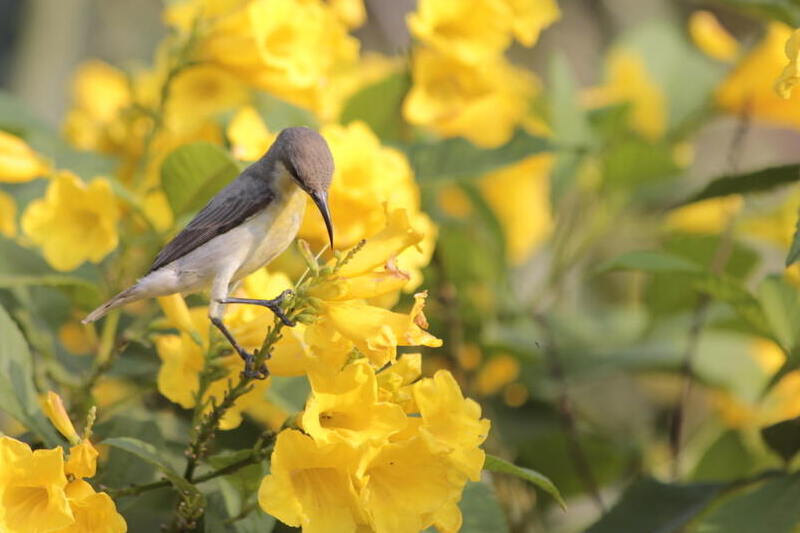Birds are warm-blooded, egg-laying vertebrates with toothless beaked jaws.
Birds play a significant role in our ecosystem.

- Birds act as pollinators, transferring seeds and nutrients as they fly from one region to another.
- Birds eat unwanted pests, which helps in preventing pest outbreaks and crop depletion thereby playing a significant role in agricultural production.
Interesting facts about birds
- Scientists estimate 9000 to 11000 bird species worldwide, twice the number of mammal species.
- Birds evolved from a group of dinosaurs called Theropods.
- Although birds evolved from dinosaurs that had teeth, birds do not have teeth.
- Birds eat twice their weight in a day.
Individual bird facts
- Ostrich is the tallest bird and Sarus Crane is the tallest bird that can fly.
- The peregrine falcon is the fastest bird, with a flight speed of more than 185 miles per hour when diving. However, these wild birds don’t make the top ten fastest on a level flight. The spine-tailed swift flies faster at over 100km per hour on level flight.
Concern
Birds are going extinct at an increasing rate. Since 1500, researchers claim that around 154 bird species have gone extinct and in the last quarter of the 20th century, 18 species have gone extinct.
Possible far-reaching consequences of birds’ extinction
- Extinction of plants, the spread of disease, and the loss of pest control.
- There would also be no long-distance seed dispersal, limiting food production and medicine.
Awareness and Conservation
To reduce these far-reaching consequences, we should try to spread awareness and support bird conservation programs.
